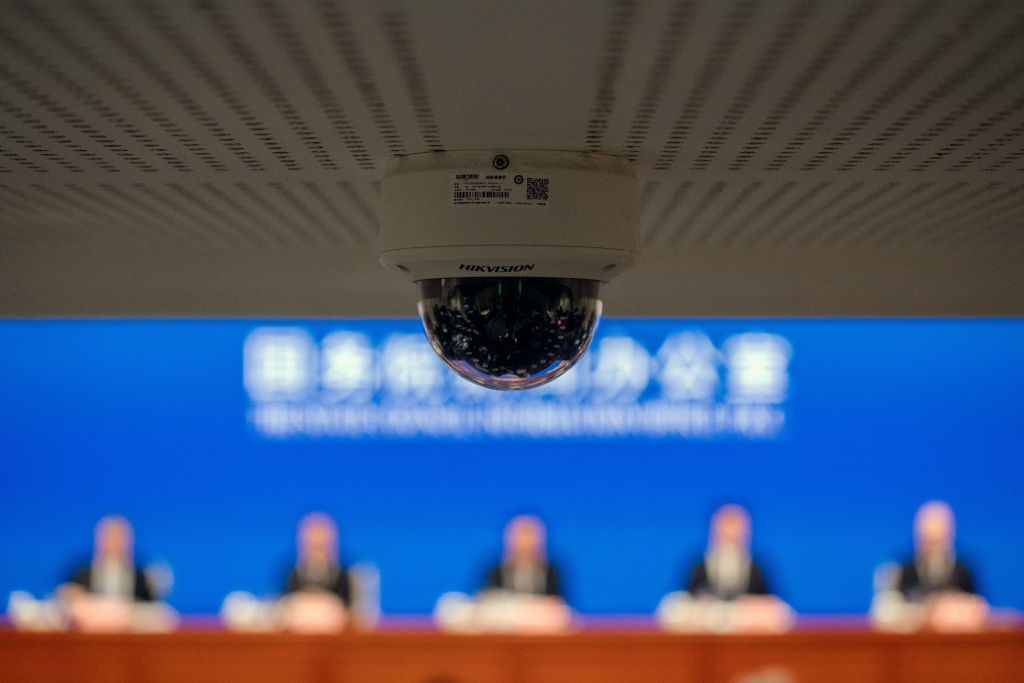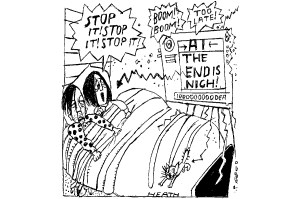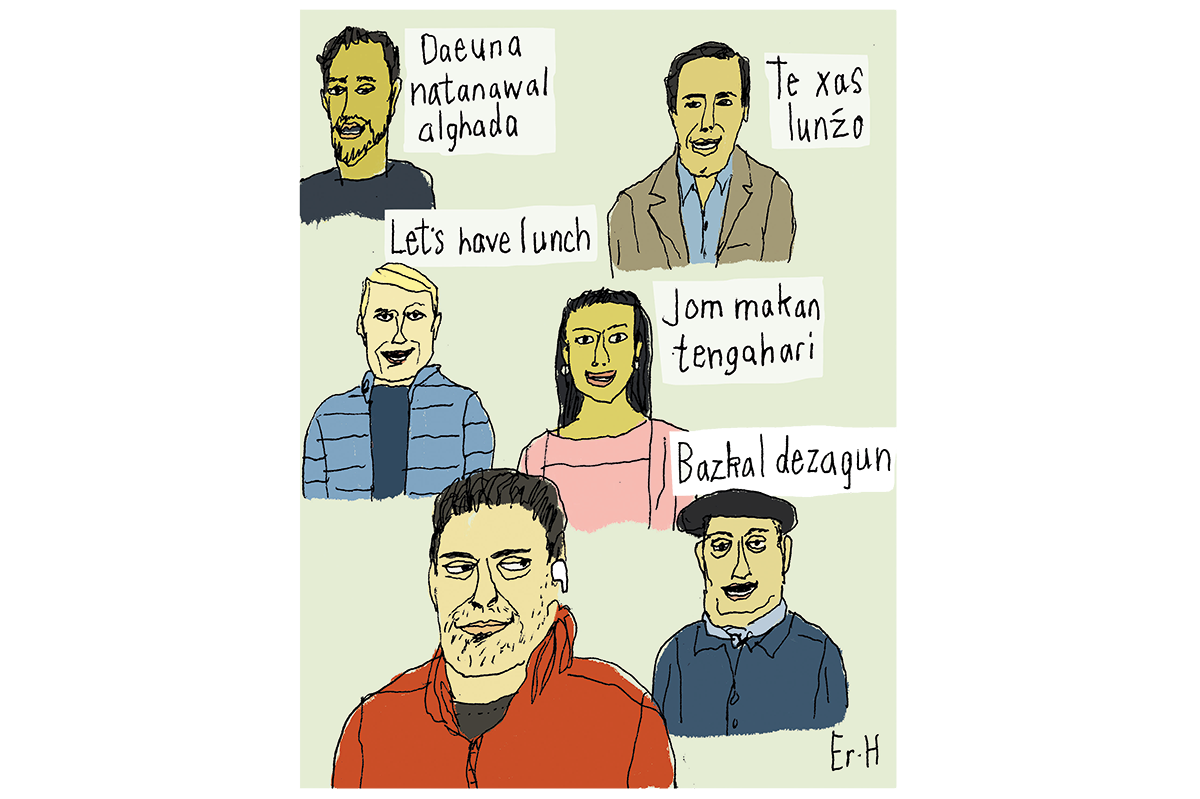Coming soon to as neighborhood near you: cameras everywhere. On every traffic light, intersection, telephone pole and storefront, with tracking software that uses facial, gesture and heartbeat recognition. That identity data is combined with web search history, conversations with Alexa and Siri, Amazon purchases and Twitter. A complete individual profile, with a score measuring social reliability, can be constructed and shared with law enforcement and intelligence agencies.
This might sound too dystopian to be true. But the Chinese government is already employing these technology and tactics to imprison one in every three of the three million Uighur Muslims in western Xinjiang province for ‘reeducation’ in an effort to destroy a culture, language and social fabric that goes back centuries.
China has created a new science by integrating novel software tools with Big Data and artificial intelligence. The results are either being exported to America now, or being emulated in programs under development here. Soon, it will become possible not just to arrest someone after a crime has been committed, but to actually predict a crime before it has occurred. These predictive capabilities will extend to knowing just which renter might skip town without paying, who might default on a mortgage, and even who is the right person to promote in a company.
All might be great for the police, intelligence agencies and landlords. It might not be so welcome for the millions of ordinary citizens who lead blameless lives and have no wish to become a victim of an software algorithm or a data solution that discriminates against a particular sector of the population.
A whole new industry is emerging to protect us from this uncontrolled technological assault. The individual who chooses to be liberated rather than controlled must learn to hide. The solutions range from the bizarre (clothing that can fool the cameras) to the more conventional, including legislation to proscribe how technology and Big Data can be used.
However well-meaning the legislative approach is, it will always lag behind technological revolution. Currently, the US has no enforceable regulations about just how and where AI can be used, or even a set of ethical guidelines about what constitutes a use of technology that may not be in the public’s best interests. Instead, state and federal legislators argue to no apparent purpose about which technologies are permissible, with no apparent understanding of the pace and direction of the technology revolution.
This failure means that the private sector must develop innovative and effective answers that make sense for ordinary people who wish to protect themselves from the overweening power of Big Brother.
One solution is to spoof the ubiquitous cameras with the ‘Alternative T-shirt’. Developed by Northeastern University, MIT and IBM, this bears a printed image that fools the algorithms and hides your identity. Soon, such a solution will be available as a clothing stick-on. To remain effective, its design will have to keep pace with the ever-evolving algorithms.
The ‘Alternative T-shirt’ may prove tactically invaluable to the demonstrator who wishes to avoid police snatch squads who have used AI to classify his or her gestures as threatening. But for those looking for a more strategic approach, there are much better tools available.
In a perfect world, which no longer exists, staying off Facebook, YouTube, Twitter and Amazon is the best way to hide. If that’s not an option, then the Dark Web is the place to be. The Dark Web rides inside the world wide web, but it is not indexed by regular search engines, and many of its sites have the suffix ‘.onion’. It can only be accessed using the Tor Browser (a free download). Search queries are routed through multiple proxy servers so they are very difficult to track.
The Dark Web is a lawless world where the majority of traffic is illegal and where just about anything and anyone seems to be for sale. This ranges from usernames and passwords, a lifetime Netflix account for $6, prepaid debit cards for a fraction of their value to hackers and assassins for hire and guns and explosives for sale. More disturbingly, this is where child pornographers gather and sex traffickers do their business. This is also a place where spies conduct clandestine operations and a great deal of industrial and economic espionage is conducted and exchanged for cash.
Still, if you are a comparatively innocent citizen simply wanting to hide from the prying eyes of officialdom in all its forms, the Dark Web is the place to be. Choosing an identity is simple and costs nothing. It is possible to create a completely new identity with which you can tweet at will. Unless you have done something really bad that calls attention to your world, it is highly unlikely that anyone from law enforcement will have the time or the skill to track you down.
For most of us, however, the reality will be that such precautions are too much to handle. Instead, we will turn to government to protect us. This hope will prove to be misplaced: government is moving too slowly to make any difference, and the private sector is already taking over many of the roles of government. For example, while the police in San Francisco are not allowed to use facial recognition software on suspects, landlords can use it on tenants and school on students.
Even the intelligence community is outsourcing both the gathering and analysis of data to private companies. Those same companies are repurposing that same data for sale to the private sector. Along the way, a vast national and international private series of databases are being created involving billions of people where what is gathered, held and sold is entirely unregulated.
While this sounds alarming, there are multiple ways of controlling the distribution of private data — most simply by manipulating the settings of your social media accounts. Is that revealing selfie sent to a lover able to be viewed only by him or her? Check. Nobody can access the private account? Check.
But a hack or, more likely, a jilted lover or a supposed ‘friend’, can destroy any vestige of security you thought you had. Even more alarming, a photo of a lover’s genitalia can now be easily inserted into a deepfake picture and uploaded to a porn site. Free software can take an image of genitalia, put them on a body with your face, insert them into an orgy and before you can say ‘Wait a minute, that’s not me!’, the world is convinced it knows exactly who you are and what you do in your spare time.
The bottom line in this world of see-and-be-seen is that hiding is possible. But it’s really hard — and it’s getting harder.


























